Late 2015 conference
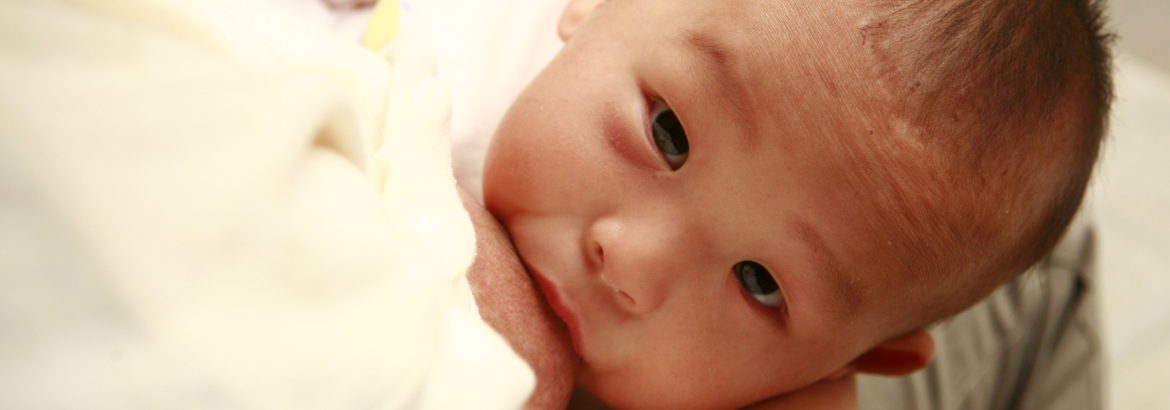
Building better breastfeeding
September - November, 2015
Our 7th online breastfeeding conference
More Rock Stars of Lactation™ presented at our seventh conference, Building better breastfeeding. This was held online during September – November 2015 and had participants from 62 countries. The conference is now closed and the presentations are no longer available. You can still read the topic introductions and more background about the speakers. Thank you for your interest!
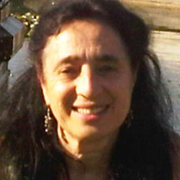
Human milk banking in resource limited settings
Anna Coutsoudis, PhD - Read moreHuman milk banking in resource limited settings
Anna Coutsoudis, PhD
Anna Coutsoudis is a public health scientist who holds the post of Professor in the Department of Paediatrics & Child Health at the University KwaZulu-Natal, Durban, South Africa.
She has done extensive research on HIV and nutrition, and especially in breastfeeding and has published over 120 peer-reviewed journal articles. Her research work has played an important role in the shaping of the WHO guidelines on HIV and Infant Feeding and she is a member of several WHO committees and guideline groups.
She is committed to improving maternal and child health in vulnerable communities through strategies that empower communities. In recognition of her contributions she was awarded the Science for Society Gold Medal award by the Academy of Science of South Africa.
Prof Coutsoudis established the first community based breastmilk bank in South Africa specifically to provide donor breastmilk to AIDS orphans. She is now collaborating with the Department of Health and PATH to scale up of human milk banking in South Africa in neonatal intensive care units as well as in rural community based human milk banks through the GSK/Save the Children Health Innovation Award.
Human milk banking in resource limited settings
This presentation covered the importance of the availability of donor human milk for vulnerable infants who cannot access their own mother’s milk especially in resource poor settings. The presentation then covered practical guidance on setting up human milk banks in resource-limited settings, which is possible provided simple safety procedures are put in place. This has been further facilitated due to the availability of the newly developed low cost; mobile; FoneAstra Pasteurization system for pasteurizing breastmilk.
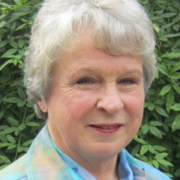
Mother-baby separation: microbiome and health implications
Ros Escott, BAppSc, IBCLC - Read moreMother-baby separation: microbiome and health implications
Ros Escott, BAppSc, IBCLC
Ros Escott has been a lactation consultant for 26 years. She is also active as an Australian Breastfeeding Association counsellor, trainer and assessor, and an international BFHI assessor and educator. She has contributed to the implementation of BFHI in Australia, New Zealand, Singapore and Taiwan. She has a particular interest in understanding not just what is important in infant feeding and care, but why it is important.
Mother-baby separation: microbiome and health implications
Any mother-baby separation in the neonatal period has the potential to affect the optimal establishment of the infant’s gut microbiome, and hence has long term implications for health and the development of allergies. When babies have been born by caesarean, episodes of separation in the neonatal period have increased risks, yet these infants are more likely to be separated. Immediate, undisturbed skin-to-skin after birth (BFHI Step 4), exclusive breastfeeding and full rooming-in (BFHI Step 7) are practices which potentially have life-long effects.
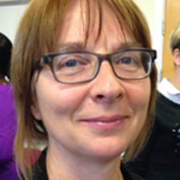
Breastfeeding, poverty and crisis in the UK
Sally Etheridge, BA(Hons), PGCE, IBCLC - Read moreBreastfeeding, poverty and crisis in the UK
Sally Etheridge, BA(Hons), PGCE, IBCLC
Sally Etheridge is an IBCLC in Leicester, the first city of the UK to have a majority Black & Ethnic Minority population. She was a La Leche League leader from 2000 until 2012. She was a member of LLLGB’s Peer Counsellor Programme team, which inspired her to specialize in developing community breastfeeding peer support. In 2009 she began Mammas, a community breastfeeding peer support programme and Community Interest Company. ‘Mammas’ is truly multi-cultural, like the community it serves – over 60 mothers have completed the training, representing 20 nationalities and seven faith groups. A core element of her approach to protecting and supporting breastfeeding is its role in the wider society; mitigating poverty, health inequalities and social isolation, and creating strong communities of women from all walks of life. Sally is Secretary of LCGB, Lactation Consultants of Great Britain.
Breastfeeding, poverty and crisis in the UK
For increasing numbers of families in the UK, life has become worryingly uncertain. How do families and mothers with babies cope when they are hit with crisis – loss of family income, welfare cuts, housing issues, domestic violence, immigration status… ? Food banks are hitting the headlines. Yet the role of breastfeeding in reducing the burden of poverty and addressing health inequalities, and as ‘an emergency-preparedness activity’ (cf Dr Karleen Gribble) is overlooked and still seen as having relevance only in ‘developing countries’. How can the breastfeeding community come together to support all babies and mothers at such times, and to raise the profile of the critical importance of breastfeeding among those making the decisions and delivering services?
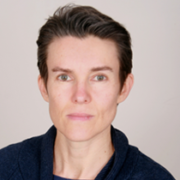
Breastfeeding with a cleft lip and/or palate
Alice Farrow, Lactation Educator - Read moreBreastfeeding with a cleft lip and/or palate
Alice Farrow, Lactation Educator
Alice Farrow is a Lactation Educator (certified with Arizona State University in 2015), writer, speaker and infant feeding advocate with expertise in breastfeeding with a cleft lip and palate and health inequities. Since 2006 (initially as a mother support counsellor and cleft parent, later independently) Alice has researched, taught and advocated worldwide on the topic of breastfeeding with a cleft lip and palate and worked extensively with parents, parent organisations, cleft teams, health providers, and lactation support professionals in order to increase awareness of the specific challenges faced by cleft infants and their families and improve access to adequate lactation support for this community. Resident in Italy, Alice has two information websites – Cleft Lip and Palate Breastfeeding and Allattamento e Labiopalatoschisi, an online parent support group in each language, as well as providing one-on-one parent support through in person and distance counselling.
Alice is an undergraduate student with the Open University (UK), working towards a Bachelor of Science with a focus on health and social care, public health promotion, and developing practice. The article Lactation Support and the LGBTQI community was published in the Journal of Human Lactation’s “equity” issue in February 2015. Alice participated in the 2014 Lactation Summit – Addressing Inequities within the Lactation Consultant Profession, and is currently a member of the Lactation Consultant Equity Initiative. Alice has also completed peer reviews for JHL and the Journal of GLBT Family Studies.
Breastfeeding with a cleft lip and/or palate
It is often thought that infants born with a cleft lip and palate, or cleft palate, cannot breastfeed. This talk looked at the definition of breastfeeding, how infants with a cleft lip and/or palate do breastfeed, and the kind of support and technical assistance the family or parent/infant dyad may require throughout the first breastfeeding months or ‘year’ – from diagnosis through to surgical closure of the lip and/or palate and some time beyond (which can occur anywhere from 2 – 18 months).
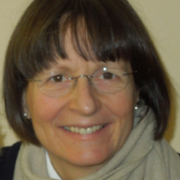
Weight gain – evaluation criteria for breastfeeding counselling
Márta Guóth-Gumberger, IBCLC, DiplIng - Read moreWeight gain – evaluation criteria for breastfeeding counselling
Márta Guóth-Gumberger, IBCLC, DiplIng
Márta Guóth-Gumberger is an International Board Certified Lactation Consultant and a civil engineer. She is certified in counseling and crisis intervention for families with young infants. She has worked with breastfeeding mothers since 1992 and as an IBCLC in private practice since 1999, specializing in relactation, weight gain, milk supply issues, special need babies and making best use of a nursing supplementer if needed. The unique combination of many years’ experience in evaluating breastfeeding and weight gain with her engineering background enabled her to develop the evaluation criteria and the LACTDOC program. Her counseling background ensures that data and figures always remain simply a tool in the service of personal counseling. She is author of many publications, for example of the book Weight Gain and Breastfeeding (in German), of the booklet Breastfeeding with the Supplementary Nursing Systemand a breastfeeding book for parents published in seven languages.
Weight gain – evaluation criteria for breastfeeding counselling
Weight curves are an effective tool in breastfeeding counseling. After a brief discussion of percentiles and their meaning, selected cases will be presented including weight curve, photos, video clips and details of counseling to show how conclusions from the weight curve support counseling. Afterwards, evaluation criteria will be presented. Weight curves in a large enough scale in combination with observations and diaper output show even minor changes, help to detect any upcoming problems early and enable to evaluate the efficacy of the measures undertaken. They are especially useful during weaning from eventual supplementation. Competent use of weight curves improves breastfeeding counseling for the well-being of mother and baby.
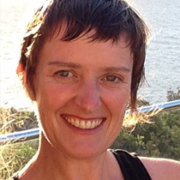
“Yes but what do you actually do?” Unpacking the role of the IBCLC
Jen Hocking, BA, BN, Grad Dip Mid, M Mid, IBCLC, RN, RM - Read more“Yes but what do you actually do?” Unpacking the role of the IBCLC
Jen Hocking, BA, BN, Grad Dip Mid, M Mid, IBCLC, RN, RM
Jen Hocking has been a midwife in Melbourne, Australia for 19 years. She trained as a breastfeeding counselor with the Australian Breastfeeding Association and volunteered as a local group leader and telephone counselor for 7 years, as well as teaching breastfeeding education classes with other volunteers. She qualified as an IBCLC in 2008. Jen’s master’s research looked at how women experienced postnatal home midwifery care (a standard feature of public maternity care in Australia). Her Phd research is seeking to better understand the work of Lactation Consultants across the breadth of practice in Melbourne, Australia.
“Yes but what do you actually do?” Unpacking the role of the IBCLC
Lactation Consultants have existed as a profession for 30 years. Despite their relatively established presence in health care systems and private practice, there has been little examination of what LC practice is like, or how LCs feel about their work. This presentation discussed the research that has been done so far about breastfeeding support – as it is provided by nurses, midwives and others, in various settings. It Discussed the research that has been done about Lactation Consultant practice which provided a backdrop to the aims of Jen’s research project which examined LC work in Australia and asks women to share their own experience of LC care.
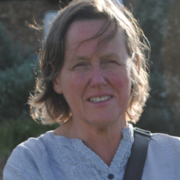
Under the pump: the Mothers and Infants Lactation Cohort (MILC) study
Helene Johns, RN, RM, DipAppSci(CHNurs), BHealthSci(AdvNurs), MEd, IBCLC - Read moreUnder the pump: the Mothers and Infants Lactation Cohort (MILC) study
Helene Johns, RN, RM, DipAppSci(CHNurs), BHealthSci(AdvNurs), MEd, IBCLC
Helene Johns is a midwife and maternal and child health nurse, lactation consultant and volunteer counsellor with the Australian Breastfeeding Association. She is employed by two state-wide services: The Women’s Health Information Centre (based at the Royal Women’s Hospital in Melbourne) and the Victorian Maternal and Child Health telephone line. Work in these services embraces the provision of advocacy, advice, support and referral for women and children. Helene’s clinical role at the Women’s involves the provision of pap tests and other sexual health screening for well women and deinfibulation for women who have experienced circumcision. She has a background in clinical practice, education and conference organisation. A PhD candidate at the Judith Lumley Centre, La Trobe University, Melbourne, her final submission on the Mothers and Infants Lactation Cohort (MILC) study is imminent.
Under the pump: the Mothers and Infants Lactation Cohort (MILC) study
Many breastfed infants receive expressed breast milk as well as feeding at the breast. Concurrently breast pumps have evolved to be more sophisticated and aesthetically appealing. This presentation described the MILC study, our exploration of the prevalence and outcomes of breast milk expression, and whether feeding other than at the breast in the first 24-48 hours decreased the proportion of infants breastfeeding at six months. The methods of the study, the findings and implications for practice were discussed.
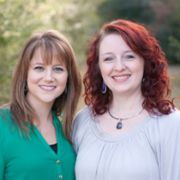
Lactation detectives: challenging cases for new IBCLCs
Leah Jolly, BA, IBCLC, RLC and Misti Ryan, BSN, RN, IBCLC, RLC - Read moreLactation detectives: challenging cases for new IBCLCs
Leah Jolly, BA, IBCLC, RLC and Misti Ryan, BSN, RN, IBCLC, RLC
Leah has been working with moms and babies since 2004 as a La Leche League leader and Texas’ Professional Liaison, and since certifying as an IBCLC in 2011. Misti has been working with couplets for 17 years as a labor & delivery nurse, educator, La Leche League leader and Texas’ professional liaison, and since certifying as an IBCLC in 2011. Leah and Misti co-own a thriving private practice in Houston, Bay Area Breastfeeding and Education. Since inception in 2011, they have had over 2200 visits in both the home and pediatric office settings. Misti and Leah have presented all over the country including the Michigan Breastfeeding initiative, Lactation Consultants in Private Practice, webinar for ILCA, Texas La Leche League Area Conferences. Leah is a busy wife and mother of four breastfed boys who enjoys the outdoors, reading non-fiction, and researching health and wellness, and Misti stays busy as a wife and mother of five breastfed children and enjoys reading sci-fi, writing/blogging, and crossfit
Lactation detectives: challenging cases for new IBCLCs
As an IBCLC, you will encounter a variety of consult situations regardless of the setting you work in: Some mothers and babies may only need help with basic lactation management such as engorgement, low weight gain, pumping and latch assessments. However, you won’t escape those consults that make you want to drop your jaw or scratch your head and leave you speechless. These experiences may test the limits of your confidence and knowledge. This talk equiped you with skills to gather evidence and unleash your inner detective to bring about a positive outcome for mother and baby.

Differentiating nipple pain from tongue-tie to vasospasm
Miri Levi, MS, CNM, FNP-BC, WHNP-BC, IBCLC - Read moreDifferentiating nipple pain from tongue-tie to vasospasm
Miri Levi, MS, CNM, FNP-BC, WHNP-BC, IBCLC
Miri Levi is a Certified Nurse Midwife, Family and Women’s Health Nurse Practitioner and International Board Certified Lactation Consultant. She achieved her bachelors and masters of science in Midwifery and Women’s Health from Columbia University in New York City. She then completed a post-masters certificate as a Family Nurse Practitioner at the University of Massachusetts. Miri is dedicated to helping women learn how to breastfeed and continue successfully. Miri is also passionate about supporting women and families throughout the lifespan.
Differentiating nipple pain from tongue-tie to vasospasm
When a breastfeeding mother calls with a concern about breast pain, many providers assume the woman has a yeast infection and begin treatment. However, many women do not experience a resolution of symptoms and often endure months of painful nursing. Breast and nipple pain are very common and can be caused by a myriad of lactation issues. This presentation taught how to diagnose and treat different types of breast and nipple pain and help women find the answers they need to nurse pain free. This topic focused on yeast infection of the breast, lingual and labial tongue-tie, Reynaud’s phenomenon of the nipple, bacterial breast infections, shallow latch, and discomfort associated with the milk ejection reflex. Participants learnt how to triage pain related nursing issues and ensure that women are able to continue to exclusively breastfeed their infants.

Breastfeeding culture and progress in Afghanistan
Mohammad Hamayoun Ludin, MD, MPH, Nutrition specialist - Read moreBreastfeeding culture and progress in Afghanistan
Mohammad Hamayoun Ludin, MD, MPH, Nutrition specialist
Dr Ludin is the Director of the Public Nutrition Department of the Ministry of Public Health, Afghanistan. He graduated from the Medical Faculty of Nangarhar University, Afghanistan with an MD. He is the National coordinator of IYCF in Afghanistan, and works in the Public Nutrition Department of the Ministry of Public Health as a Maternal Nutrition consultant. Dr Ludin holds a Post graduate Diploma in Public Health Nutrition from the Public Health Foundation of India, as well as Masters of Public Health from the Public Health school from London School of Hygiene and Tropical Medicine (LSHTM) in Kabul. He also has a Diploma of Community medicine from University of Indonesia in Jakarta.
Breastfeeding culture and progress in Afghanistan
The presentation explained the culture, updates and situation regarding breastfeeding in Afghanistan. Data from the latest National Survey and WBTi trend report was presented, with a discussion of the challenges and coordinated efforts.
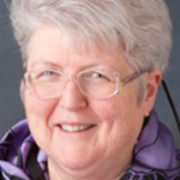
Why milk matters
Maureen Minchin, BA(Hons), MA(Melb), TSTC - Read moreWhy milk matters
Maureen Minchin, BA(Hons), MA(Melb), TSTC
Medical historian and health educator Maureen Minchin has been involved in global efforts to promote evidence-based infant feeding for decades, and is internationally recognised for her pivotal role in creating the lactation consultant profession. She has been a consultant to international bodies such as the World Health Organization (WHO) and the United Nations Children’s Fund (UNICEF). She has educated health professionals, including through creating university-based courses in the UK and Australia. And she is an Editorial Board member for the open-access online International Breastfeeding Journal.
Maureen is the author of Food For Thought: A Parent’s Guide to Food Intolerance and Breastfeeding Matters: what we need to know about infant feeding, as well as journal articles and background briefing papers for the WHO and USAID. Having three children in the 1970s, she experienced hospital practices that made breastfeeding difficult and allergy inevitable, with life-changing consequences for her children. She has since spent a lifetime providing advice and support to allergic families, while also working to improve health professionals’ education and training. Her latest book, Milk Matters: infant feeding and immune disorder has just been published in 2015 and can be ordered directly from the author here.
Why milk matters
This presentation will outline some of the science and history supporting the milk hypothesis as an explanation for the global emergence of immune disorder and the so-called NCDs, the non-communicable diseases. It will argue that compounding intergenerational impacts of changes in infant feeding have in fact created vertically communicated disease, by altering microbiomes and affecting genetic expression, in ways proven to be transmissible between the generations, and not only from mothers to children. Milk samples the total environment and facilitates infant adaptation to it, providing a complex mixture of bioactive components and balanced nutrients that have never been, and cannot be, replicated industrially. It will summarise some of the key ways in which artificial feeding has been shown to alter normal human development, and suggest reasons why this critically important research has not been better conducted, understood, or acted upon. It will outline some of the structural changes – to the care of women and infants, and wider social policies – needed to halt and perhaps reverse the damage already created in genomes and microbiomes by a century of global artificial feeding. It will provide participants with a clearer understanding of the critical importance to human health – present and future – of the World Health Organisation (WHO) recommendation that all infants, in every country, ideally will be solely breastfed to around six months, and continue to be breastfed into the second year and beyond.
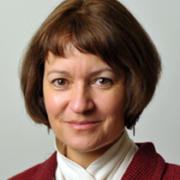
Primal Caregiving: Why give babies what they evolved to need
Darcia Narvaez, PhD - Read morePrimal Caregiving: Why give babies what they evolved to need
Darcia Narvaez, PhD
Darcia Narvaez is Professor of Psychology at the University of Notre Dame. She publishes extensively on moral development and education. Her most recent book is Neurobiology and the Development of Human Morality: Evolution, Culture and Wisdom (2014, Norton). She is executive editor of the Journal of Moral Education. She also writes a popular blog for Psychology Today (“Moral Landscapes”).
Primal Caregiving: Why give babies what they evolved to need
Participants learnt about the immaturity of human babies at birth, the early caregiving practices that human babies need and expect (loving responsiveness, positive and no negative touch, breastfeeding, soothing birth experience, free play, multiple responsive adults and positive social support) why they are important for health, sociality, and morality. Specifically, participants were able to: List multiple risks of not following the needs of babies; Describe how family and cultural milieus can optimize psychological development; Describe the neurobiological effects and moralities between those who do and don’t receive proper (species-typical) early care.
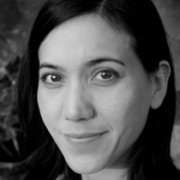
Of risks and rewards: anthropological perspectives of milk sharing
Aunchalee Palmquist, MA, PhD, IBCLC - Read moreOf risks and rewards: anthropological perspectives of milk sharing
Aunchalee Palmquist, MA, PhD, IBCLC
Dr Aunchalee Palmquist is an Assistant Professor of Sociology and Anthropology at Elon University. She received her PhD in Anthropology at the University of Hawaii-Manoa in 2006. Dr Palmquist is a medical anthropologist and International Board Certified Lactation Consultant. She is a 2013 graduate of the Mary Rose Tully Training Initiative, Carolina Global Breastfeeding Institute. Her postdoctoral training also includes a fellowship at the National Institutes of Health (2007-2009) and an appointment as postdoctoral associate and lecturer in the Global Health Initiative of the Jackson Institute for Global Affairs, Yale University (2009-2011). Dr Palmquist has worked in clinical, community-based, and interdisciplinary settings. Her research expertise includes health disparities, infant and young child feeding, maternal-child health, global health, and medical pluralism. She has conducted ethnographic field research in Hawai’i, the Republic of Palau, and Thailand. Dr Palmquist has published in Preventing Chronic Disease, Gerontologist, Journal of Genetic Counseling, Journal of Nutrition Education and Behavior, Journal of Immigrant and Minority Health, and Social Science & Medicine.
She is currently conducting a multi-sited, ethnographic study of human milk sharing in the US, funded by the Wenner-Gren Foundation and Elon University. This project, Taking Milk From Strangers: An Anthropological Investigation of Internet Breast Milk Sharing in the US examines the biocultural, political economic, and technological dimensions contemporary human milk sharing practices. The purpose of this project is to gain a better understanding of the practices, motivations, and meanings of milk sharing in the everyday lives of mothers, others, and their babies.
Of risks and rewards: anthropological perspectives of milk sharing
This presentation focuses on insights gained from an ongoing multi-sited ethnographic study of contemporary peer-to-peer milk sharing in the United States. The purpose of this presentation is to describe perceptions of risk, decision-making strategies, and experiences of milk sharing from an emic perspective, in other words, from the point of view of people who are actively milk sharing. By examining survey data along with participants’ narratives and insights from ethnographic fieldwork, dissonance between public health recommendations and parents’/caregivers’ perceptions of milk sharing risk are made clearer. A case study approach will be used to illustrate the complex decision-making processes involved in milk sharing praxis among families in the US, many of which pose unique challenges for public health and clinical practice. Examples of how some community-based organizations, many led by health care professionals, are facilitating informed milk sharing are also presented. The broader implications of peer-to-peer milk sharing for human milk donation to HMBANA milk banks are considered.
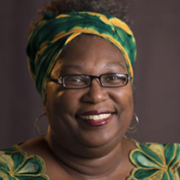
Welcoming African-American women to your breastfeeding practice
Sherry Payne, MSN, RN, CNE, IBCLC - Read moreWelcoming African-American women to your breastfeeding practice
Sherry Payne, MSN, RN, CNE, IBCLC
Sherry Payne has a bachelors of nursing received from Rockhurst University, Kansas City, USA, and a masters in nursing education from Research College of Nursing. She is in doctoral studies at Walden University in nursing education. She is also currently a student of midwifery, completing requirements for the CPM credential. She is an Internationally Board Certified Lactation Consultant and a Certified Nurse Educator. Upon completion of her midwifery studies, she plans to open an urban prenatal clinic, birth center and is currently opening a school of midwifery, designed to revitalize midwifery in the urban core. Sherry founded Uzazi Village, a nonprofit dedicated to decreasing health disparities in the urban core. She is an editor for Clinical Lactation Journal, and sits on the board of the National Association for Professional and Peer Lactation Supporters of Color. She also sits on her local FIMR Board (fetal infant mortality review). She presents nationally on perinatal health disparities in birth and breastfeeding. Her career goals include increasing the number of midwives of color and improving lactation rates in the African American community through increasing the number of LCs of color. She is the creator of the Chocolate Milk Café™ and the Sister Doula Program™. She is the author of the popular blog, Urban Village Midwife. Sherry resides in Overland Park, KS, a suburb of Kansas City, USA with her husband and nine children.
Welcoming African-American women to your breastfeeding practice
This presentation examined the issue of health inequities in the African-American community and the role of systemic racism and white privilege in those inequities. It discussed common barriers to care and health promotion and how practitioners can increase their own awareness of the barriers to successful lactation. Finally, looking at strategies for eliminating disparities through purposeful assessment and examination of beliefs and attitudes and the policies that proceed from them. This presentation offered practical steps that anyone can take to begin to rid themselves of bias in the provision of care.
Welcoming African-American women to your breastfeeding practice
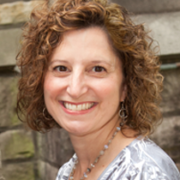
Breastfeeding without birthing
Alyssa Schnell, MS, IBCLC - Read moreBreastfeeding without birthing
Alyssa Schnell, MS, IBCLC
Alyssa Schnell has been helping mothers and babies in the St Louis area with breastfeeding for the past 13 years. She has been accredited as an International Board Certified Lactation Consultant since 2009. Her private practice, Sweet Pea Breastfeeding Support, provides prenatal, pre-adoption/surrogacy, and postpartum lactation consultations. Alyssa enjoys working with all mothers and babies, but she has an extra special place in her heart for helping mothers through adoption and surrogacy to breastfeed their babies. She is the author of Breastfeeding Without Birthing: A Breastfeeding Guide for Mothers Through Adoption, Surrogacy, and Other Special Circumstances. Alyssa is the proud mother of three breastfed children, two by birth and one by adoption.
Breastfeeding without birthing
It is truly amazing that a mother who hasn’t birthed can breastfeed her baby. There are many reasons why mothers choose to breastfeed and some additional reasons why they may want to breastfeed a baby by adoption, surrogacy, or even foster care. In some cases, mothers will be initiating breastfeeding with older or compromised babies. In all of these cases, the mother may choose to induce lactation or nurse without making milk. And when she chooses to induce lactation, her lactation consultant can guide her in developing an approach to suit her individual values and circumstances. Whether that approach involves manual techniques, pumping, at-breast supplementation, medications, or herbs can be decided with the informed guidance offered in this presentation.
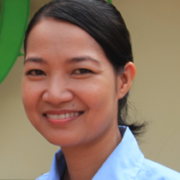
Breastfeeding in Cambodia
Sroeu Phannsy, RN - Read moreBreastfeeding in Cambodia
Sroeu Phannsy, RN
Sroeu Phannsy is a Patient Family Education Coordinator and breastfeeding counsellor in the nutrition team at Angkor Hospital for Children, a not for profit hospital which treats children free of charge in Siem Reap, Cambodia, where she has worked for ten years. She completed a three year nursing training at Battambang Regional Training Centre and one extra year to qualify in midwifery. She has attended one international breastfeeding conference and loves being part of the wider breast feeding community.
Breastfeeding in Cambodia
This presentation gave an overview of Cambodian situation regarding breastfeeding issues including some historical context and basic statistics that showed the improvements that have been made and the work still to do. It discussed some myths and social issues that prevent some mothers from breastfeeding. And also looked at some specific cases from Angkor Hospital for Children, Siem Reap, Cambodia.
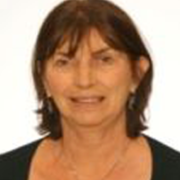
The International Code: what is new, what is important
Elisabeth Sterken, MSc, BSc, Dt - Read moreThe International Code: what is new, what is important
Elisabeth Sterken, MSc, BSc, Dt
Elisabeth Sterken, the current director of INFACT Canada, is a professional nutritionist specializing in infant and young child feeding. She has been actively working on the protection, promotion and support of breastfeeding in her home country, Canada and internationally for over 25 years. In addition to being a founding member of the Breastfeeding Committee for Canada, and past member of its Nutrition Committee, her current responsibilities include co-chair of the IBFAN Global Council governing the IBFAN global network; member of the UNICEF Breastfeeding Advocacy Initiative; member of the ILCA Code Expert Panel; The Past Chairperson and Co-Chair of the Non Governmental Organization/Civil Society Organizations group of the UN Standing Committee on Nutrition; a member of the joint Core Advisory Group of WABA and IBFAN on the governance and implementation of the global Breastfeeding Initiative for Child Survival; and the chairperson of the IBFAN Codex Working Group for the protection of breastfeeding in the development of Codex Alimentarius standards for foods for infants and young children.
The International Code: what is new, what is important
The presentation aimed to increase awareness of the importance of the International Code and relevant World Health Assembly resolutions on infant and young child nutrition as a critical tool for supporting breastfeeding as the norm for optimal health and development. Emphasis was put on current developments on Code monitoring and enforcement as well as on conflicts of interest and the need for increased advocacy for action by governments and the health care system to regulate and comply with the Code and resolutions.
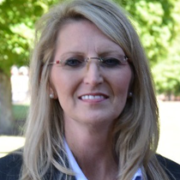
How to conduct effective inpatient lactation consultations by finding balance
Genae Strong, PhD, CNM, RNC-OB, IBCLC, RLC, CLC, CNE - Read moreHow to conduct effective inpatient lactation consultations by finding balance
Genae Strong, PhD, CNM, RNC-OB, IBCLC, RLC, CLC, CNE
Dr Genae Strong is an associate professor at the University of Memphis, Loewenberg School of Nursing with 24+ years of experience supporting breastfeeding women through teaching, research, and service. Both a national and international speaker, Dr Strong has authored multiple articles in the field of lactation. Dr Strong maintains a funded (ILCA 2012 Research Grant, & University of Memphis 2012 Faculty Research Grant) program of research focusing on barriers health care providers’ experience when assisting breastfeeding moms. As the largest health care profession in the US, nurses play a crucial role in changing health behaviors known to promote health and prevent disease. Because the primary reason for hospitalization in the US is childbirth, nurses are uniquely positioned to provide evidence based lactation care to every new mom. However, learning opportunities for nursing students are often inadequate leaving students less confident, less competent, and ill equipped to provide basic lactation care. Serving the Memphis Area Lactation Consultant Association (MALCA) as president and the Shelby County Breastfeeding Coalition (SCBC) as Academic Chair, Dr Strong exhibits a “strong” passion for improving maternal and infant health outcomes. Dr Strong received the 2015 Award of Excellence in Education from AWHONN and was recently elected to the USLCA Board of Directors for Professional Development.
How to conduct effective inpatient lactation consultations by finding balance
Hospital inpatient consultations by IBCLCs require educating, assessing, developing a plan of care, implementing and evaluating, issuing referrals, and counseling breastfeeding families. Shortened hospital stays, lack of professional experts, and limited patient exposure pose increasing challenges to providing adequate support. Recommendations for conducting effective consultations given common challenges include finding a balance. Exemplar cases helped reveal strategies to conducting effective inpatient consultations.
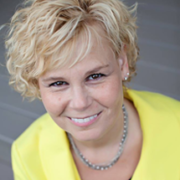
Epigenetics 101: genes and how breastmilk influences how they work
Jennifer Thomas, MD, MPH, IBCLC, FAAP, FABM - Read moreEpigenetics 101: genes and how breastmilk influences how they work
Jennifer Thomas, MD, MPH, IBCLC, FAAP, FABM
Dr Jenny Thomas is a pediatrician and breastfeeding medicine specialist at Lakeshore Medical Clinic in Franklin, Wisconsin, USA and is a Clinical Assistant Professor of Community and Family Medicine and Pediatrics at the Medical College of Wisconsin. She is now serving on the American Academy of Pediatrics (AAP) Section on Breastfeeding Executive Board after spending several years as the Chief of the Chapter Breastfeeding Coordinators. She also serves on the Executive Board of the Wisconsin Chapter of the AAP, and is a founder and the immediate-past Chairperson of the Wisconsin Breastfeeding Coalition. She is the author of Dr. Jen’s Guide to Breastfeeding. She has received awards for teaching, advocacy for children, and innovation with in her practice and community. She is one of only a few physicians internationally to be recognized as a Fellow of the Academy of Breastfeeding Medicine (FABM) for her expertise on breastfeeding. Dr Thomas’ interests and research have focused on issues related to the use of social media to support breastfeeding mothers.
Epigenetics 101: genes and how breastmilk influences how they work
We learned that DNA gives information to RNA which uses that information to direct the creation of a protein. However, epigenetics, a rapidly expanding understanding of how our genes are regulated, has challenged what we know about this pathway to protein production. This presentation reviewed basics of protein production from DNA and RNA and then introduced the mechanisms that the epigenome uses to change what genes are activated and what proteins are produced. We then looked at the unique components of human milk and how breastfeeding works within this system, potentially changing gene expression for generations.
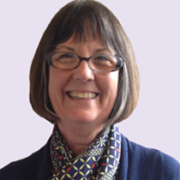
Ethics in lactation: can we talk about milk sharing
Barbara Wilson-Clay, BSEd, IBCLC, FILCA - Read moreEthics in lactation: can we talk about milk sharing
Barbara Wilson-Clay, BSEd, IBCLC, FILCA
Barbara Wilson-Clay has been in private practice in Austin, Texas, USA since 1989. She is the co-author of The Breastfeeding Atlas. Barbara was the ILCA representative to the IBLCE from 1997-2000, serving on the Exam and Ethics Committees. She is a co-founder of the Mothers Milk Bank at Austin and served on the Board of Directors of this non-profit milk bank from its founding in 1998 until she retired as Vice President of the Board in 2010. Barbara is a volunteer lobbyist in the Texas legislature, advocating for laws that protect the rights of breastfeeding families.
Ethics in lactation: can we talk about milk sharing
Milk sharing is an ancient practice. Social media have facilitated milk sharing and milk selling in new ways that have altered traditional sharing relationships. In this presentation, the history of the practice was explored, and risks and benefits are discussed within the concept of ethics. Issues such as sustainability, the potential for abuse, and the commodification of human milk were explored.

